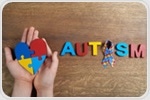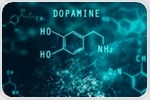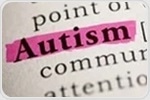
|
|
|
| |

|
|
| |
The latest autism news from News Medical |
|
|
|
|
|
 | | |  In the latest National Autism Indicators Report, researchers from Drexel University's A.J. Drexel Autism Institute examined surveys of family members of autistic adults who use Developmental Disability services, and found needs for additional supports like respite care and assistance to plan for crisis and emergencies, especially among families whose adult lived with them. In the latest National Autism Indicators Report, researchers from Drexel University's A.J. Drexel Autism Institute examined surveys of family members of autistic adults who use Developmental Disability services, and found needs for additional supports like respite care and assistance to plan for crisis and emergencies, especially among families whose adult lived with them. | | | | |  Dopamine is often called the “happy” or “feel-good” hormone. It can help explain both autistic behaviours and men’s need for passion in order to succeed. Dopamine is often called the “happy” or “feel-good” hormone. It can help explain both autistic behaviours and men’s need for passion in order to succeed. | | | | |  Autism spectrum disorder is a neurodevelopmental condition involving impaired social abilities, and this makes it a fascinating subject for neuroscientists like Prof. Teiichi Furuichi of the Tokyo University of Science who study the neuroscience of social behavior. Autism spectrum disorder is a neurodevelopmental condition involving impaired social abilities, and this makes it a fascinating subject for neuroscientists like Prof. Teiichi Furuichi of the Tokyo University of Science who study the neuroscience of social behavior. | |
|
|
|
|
|